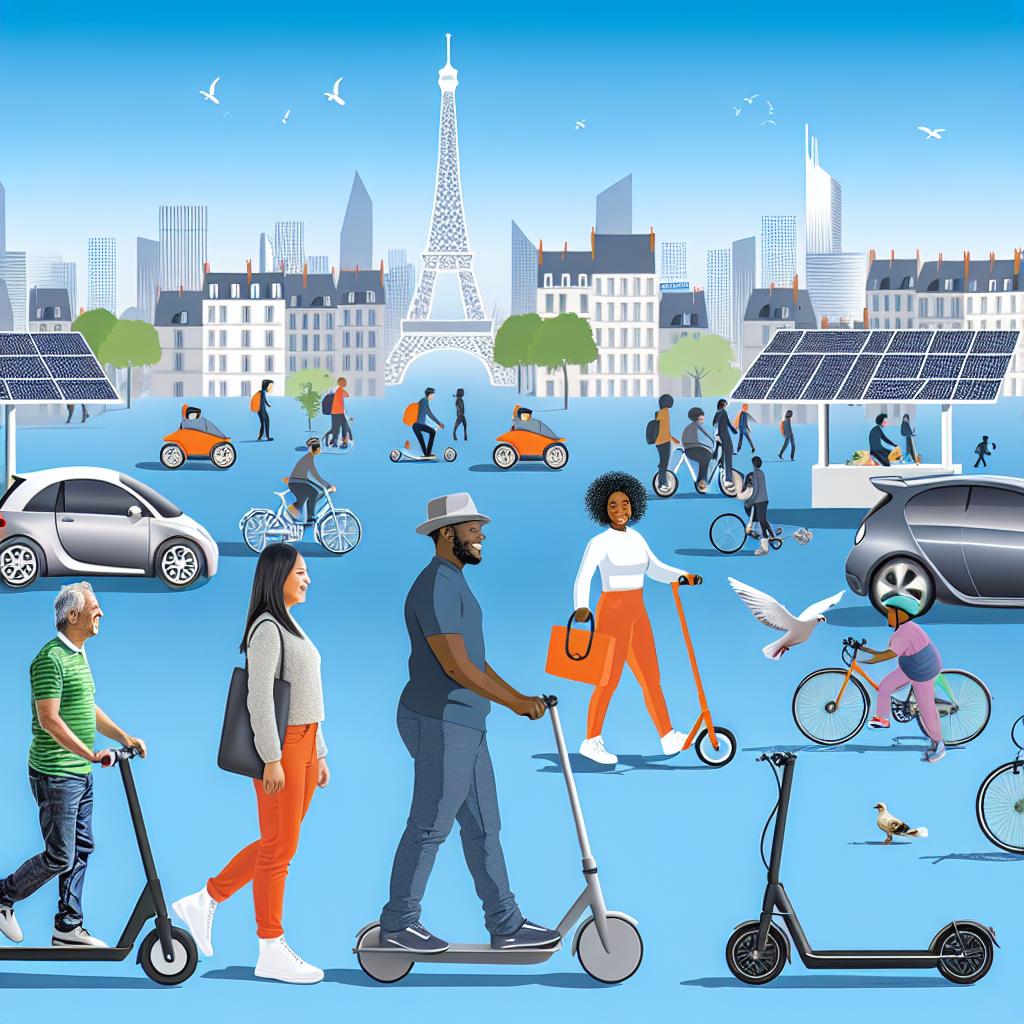The Evolution of Electric Transport in Paris
The future of electric transport in Paris is a topic of growing interest as the city aims to reduce carbon emissions and address environmental concerns. Paris has been at the forefront of initiatives to promote cleaner transport solutions, and electric vehicles (EVs) are a vital part of this vision.
Commitment to Sustainability
Paris’s commitment to environmental sustainability is evident in its ambitious targets to create a sustainable urban transport system. A commitment to reducing greenhouse gas emissions has propelled EVs to the forefront of this strategy. The longstanding ambition of the city dovetails seamlessly with the broader goals of the European Union, particularly in terms of reducing carbon footprints significantly in urban settings. The transition to electric transport is not merely an isolated approach; it is interwoven with multiple layers of policy that seek to assure compliance with global sustainability standards.
Infrastructure Development
An effective deployment of electric vehicles hinges on the availability of robust charging infrastructure. Recognizing this, Paris is in the process of vastly expanding its network of charging stations. This ongoing development makes it increasingly convenient for EV owners to recharge, whether at home or on the go. An extensive charging network is central to fostering greater adoption of electric vehicles, as it alleviates one of the primary concerns of electric car owners: range anxiety. The city is advancing toward a future where accessing a charging point will be as straightforward as finding a traditional fuel station. Further details regarding this infrastructure can be accessed on the City of Paris Website.
The Role of Public Transport
Paris’s public transportation system is also undergoing a transformative shift towards electrification. The Régie Autonome des Transports Parisiens (RATP), the authority that manages public transport in the city, is at the forefront of this transition. The introduction of electric buses into the fleet marks a substantial endeavor to curtail emissions from public transport. RATP’s goal to electrify its fleet by 2025 underscores Paris’s commitment to cleaner and more efficient public transport services. Such initiatives not only help reduce urban pollution but also provide a sustainable alternative to personal vehicle use.
Challenges and Opportunities
Despite significant progress, Paris faces several challenges in its pursuit of an electric transport future. One of the main obstacles is the cost associated with electric vehicles. High initial purchase prices can discourage widespread adoption. However, governmental initiatives, including subsidies and incentives, are designed to make EVs more accessible to a broader segment of the population. Another challenge is the development of battery technology. Enhancing range capabilities is crucial in ensuring electric vehicles are a viable alternative to traditional vehicles.
Despite these hurdles, the transition to electric transport offers a wealth of opportunities. By reducing pollution levels, Paris aims to enhance the overall quality of urban air, contributing to healthier living conditions for its residents. The development of electric transport technologies also holds economic potential, spurring innovation and job creation within the green technology sector. As a leader in this field, Paris could significantly influence other global cities. Paris’s efforts in this domain not only highlight environmental considerations but also the broader reshaping of urban landscapes and facility planning.
For individuals interested in diving deeper into the future of transport in urban areas, it is beneficial to explore resources such as the International Energy Agency. The transition of Paris to electric transport serves as both an encouraging template and a case study for other cities seeking to leverage technology for sustainable urban futures. Innovative transport solutions, like electric vehicles, symbolize not just environmental benefits, but also transformative potential for urban life.
The Broader Context and Global Influence
While Paris has made notable advances in the adoption of electric transport, its progress exists within a broader global context. Cities worldwide are watching Paris to understand the practical implications and outcomes of its innovations. Many areas with similar environmental and urban challenges see Paris as a model for transport policy reforms aimed at emissions reduction. By actively pushing for policies that support electric vehicle adoption, Paris is contributing to a wider global discourse on sustainable urban mobility.
Policy Integration and Incentives
Paris’s approach involves interlinking policy measures to ensure a holistic shift toward electric transport. This includes facilitating the financial aspects through carefully designed subsidies and incentives targeted at both consumers and manufacturers. For consumers, this could mean rebates on vehicle purchases or deductions on tax for electric vehicle buyers. From a manufacturer’s perspective, incentivizing production through grants or tax breaks encourages investment in electric vehicle technology, making development and innovation economically viable.
Future Projections for Electric Transport
The future of electric transport in Paris is undeniably promising. As technology continues to evolve, further enhancements in battery capacity, vehicle efficiency, and reduced costs are anticipated. Moreover, collaborations between government bodies and private sectors will likely catalyze sustainable urban mobility solutions. These collaborative efforts may extend beyond traditional transport approaches, paving the way for future technologies such as autonomous electric vehicles and integrated smart city systems.
In summary, Paris’s journey toward a sustainable future through electric transport is not only a reflection of its own environmental ambitions but represents a commitment to global objectives related to climate change and urban livability. Through strategic policy, infrastructural investment, and continuous adaptation to technological advances, Paris sets a benchmark for cities globally, driving towards a cleaner, sustainable future.










